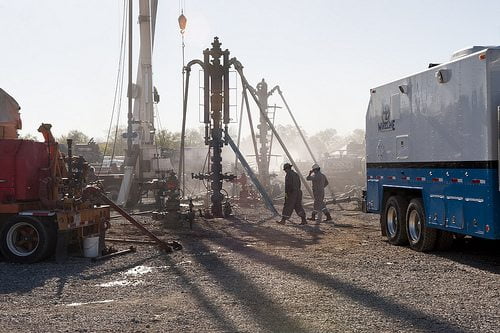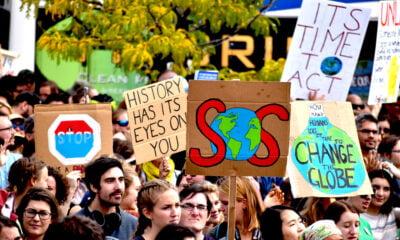

Invest
Jeremy Grantham: investing in shale gas is a waste of money
Well-respected investor Jeremy Grantham has told his clients that the convenience of fossil fuel extraction will soon be shaded by renewables and that shale gas might be more uneconomical than oil.
Grantham, who is co-founder of asset management firm Grantham Mayo van Otterloo (GMO), has long warned of the so-called ‘carbon bubble’. He is a firm opponent of the Keystone XL pipeline, which would transport oil from Canadian tar sands to the US.
In a letter to GMO clients, he argues that the shale gas boom in the US, and the subsequent development of hydraulic fracturing to extract shale oil and gas, would have harmful consequences on the environment and the global economy.
“Our new fracking oil moves our dial but barely touches the global market. Our remarkable 20% increase in output is only 2% of world production”, he wrote.
“The real oil problem is its cost – that it costs $75 to $85 a barrel from search to delivery to find a decent amount of traditional oil when as recently as 15 years ago it cost $25. And fracking is not cheap.”
He added, “We drill the best sites in the best fields first, so do not expect the costs to fall per barrel. No, fracking, like extracting tar sands, yields a relatively costly type of oil that you resort to only when the easy, cheap stuff is finished.
“Fracking wells also run off fast. We still get 10% of global oil from a single traditional field discovered in 1945 that is still chugging along. Fracking wells are basically done for in three years.”
Grantham added that he was almost definitely sure that renewable technologies will replace oil and gas for utilities as their cost goes down. He also warned that developing natural gas might add even more greenhouse gases – particularly methane – to the atmosphere.
He said, “Methane unfortunately is an even more potent greenhouse gas than CO2: at an interval of 100 years it is now estimated to be 32 times as bad, and at 20 years to be 72 times worse!
“If it leaks from well head to stove by more than 3%, it gives back its critical advantage and becomes no better than coal in its climate effect.”
Further reading:
Majority of Britons unaware of ‘carbon bubble’ investment risks
Investors warned of ‘stranded’ carbon assets and working condition risks
Climate change a long-term threat to investment, UN tells investors
Bloomberg launches tool to evaluate ‘unburnable’ carbon risks
Keystone XL a ‘high-risk’ investment with minimal economic benefits


 Environment12 months ago
Environment12 months agoAre Polymer Banknotes: an Eco-Friendly Trend or a Groundswell?

 Features11 months ago
Features11 months agoEco-Friendly Cryptocurrencies: Sustainable Investment Choices

 Features12 months ago
Features12 months agoEco-Friendly Crypto Traders Must Find the Right Exchange

 Energy11 months ago
Energy11 months agoThe Growing Role of Solar Panels in Ireland’s Energy Future




























